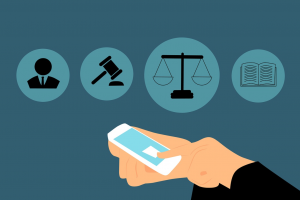Embracing these innovations allows legal professionals to provide better services, reduce costs, and improve client outcomes.
The legal industry is transforming technologically, driven by advancements in artificial intelligence (AI), blockchain, digital documentation, mobile applications, and other cutting-edge tools. These innovations reshape legal professionals’ operations, especially in personal injury and accident law. Let’s explore how these technologies make legal processes more efficient, accurate, and accessible.
Artificial Intelligence: Enhancing Efficiency and Accuracy
AI is revolutionizing legal practice because it can process massive data quantities quickly and accurately. Machine learning algorithms can analyze legal documents, identify relevant case law, and even predict case outcomes based on historical data. This allows lawyers to focus on their cases’ more complex and strategic aspects.
For instance, AI-driven tools can perform legal research in a fraction of the time it would take a human sifting through countless documents to find pertinent information. This efficiency not only saves time but also reduces costs for clients. Moreover, AI can assist in drafting documents by identifying and correcting errors, ensuring that all legal paperwork is precise and error-free.
Blockchain: Ensuring Transparency and Security
Blockchain technology is introducing new transparency and security to legal transactions. Using a decentralized ledger, blockchain provides an immutable transaction record, crucial in proving the authenticity of documents and ensuring data integrity.
In personal injury and accident law, blockchain can securely store medical records, accident reports, and other sensitive information. This ensures that all parties have access to the same information, reducing disputes over data accuracy. Additionally, smart contracts—self-executing contracts with the terms directly written into code—can automate and enforce agreements, streamlining settlement processes.
Digital Documentation: Streamlining Case Management
The shift from paper-based documentation to digital platforms revolutionizes how law firms manage cases. According to experts at Yosha Law Firm, digital documentation systems allow for the seamless storage, retrieval, and sharing of documents, significantly boosting efficiency and lowering the risk of lost or damaged files.
Legal professionals can now access case files from anywhere, enabling greater flexibility and responsiveness. This is particularly beneficial in personal injury and accident law, where timely access to information can make a huge difference in a case’s outcome. Moreover, digital signatures and secure file-sharing platforms ensure that documents are authenticated and protected from unauthorized access.
Mobile Applications: Enhancing Client Engagement

Mobile applications are transforming the way lawyers interact with their clients. These apps provide a convenient platform for clients to communicate with their legal representatives, access case updates, and submit necessary documents.
For example, personal injury victims can use an app to upload photos of their injuries, receive real-time updates on their case status, and schedule appointments with their lawyers. This improves client satisfaction and streamlines the workflow for legal professionals, allowing them to manage their caseload more effectively.
Other Technological Tools: Improving Practice Management
Various other technological tools are also contributing to the modernization of legal practices. Document automation software can generate standard legal documents with little input, reducing the time and effort required for routine tasks.
Cloud computing is another transformative technology that allows legal professionals to store vast amounts of data securely and access it from anywhere. This flexibility ensures that lawyers can work remotely, collaborate with colleagues across different locations, and provide timely updates to clients. Cloud-based case management systems offer comprehensive solutions for tracking deadlines, managing tasks, and maintaining client communications in one centralized platform.
Predictive analytics is also making waves in the legal industry. By analyzing historical data, predictive analytics tools can forecast case outcomes, helping lawyers develop more effective strategies. These tools identify patterns and trends that might not be immediately apparent, offering insights that can meaningfully influence the direction of a case.
Moreover, advanced communication tools, such as encrypted messaging apps and video conferencing software, have enhanced how lawyers interact with clients and colleagues. These tools ensure that sensitive information is transmitted securely and that legal professionals maintain continuous communication regardless of geographical barriers.
As these technologies evolve, they promise to streamline legal processes further, reduce costs, and improve the accuracy and efficiency of legal services.
Is Your Law Firm Embracing the Hi-tech Future?
Technological advancements are revolutionizing the legal industry, particularly personal injury and accident law. AI enhances efficiency and accuracy, blockchain ensures transparency and security, digital documentation streamlines case management, mobile applications enhance client engagement, and other tools improve practice management. Embracing these innovations allows legal professionals to provide better services, reduce costs, and improve client outcomes.


Join the conversation!